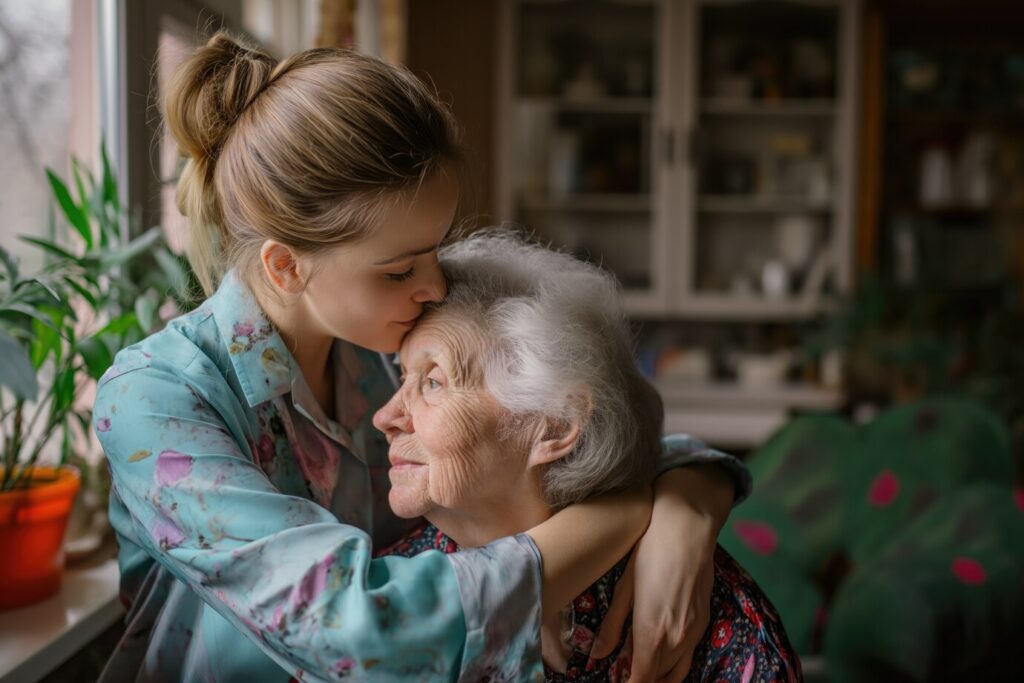Most seniors reach a point where they may require additional support and care as they age. Consider senior living parent care options if you notice changes in your loved one’s health, finances, social interactions, or personal hygiene. Understanding the signs that indicate a need for senior living can help you make informed decisions about your aging parent’s well-being. Valley Spring Memory Care in Los Banos, CA, can provide expert guidance and assistance at 209-710-4783.
Recognizing the Need for Senior Living Parent Care
Changes in Daily Routines
Before deciding if your aging parent could benefit from senior living parent care, it’s imperative to recognize the signs that indicate a need for assistance. One common sign to look out for is changes in daily routines. Consider senior care options if you notice significant shifts in your loved one’s habits, such as forgetting important tasks, missing appointments, or neglecting personal hygiene.
Difficulty with Household Chores
Recognizing the difficulty your aging parent may have with household chores is another key factor in determining if senior living parent care is necessary. As mentioned in the article, struggling with tasks like cooking, cleaning, and laundry can indicate that your loved one needs additional support in their daily life.
Difficulty with household chores can impact your loved one’s quality of life and overall well-being. Providing them with the option of senior living parent care can alleviate the stress and burden of managing these tasks independently.

Senior Living Parent Care
Types of Senior Living & Care Options
The different types of senior living options include age-in-place, Age-Restricted Communities, Independent Living Communities, Continuing Care Retirement Communities, Assisted Living Communities, Nursing Homes, and Skilled Nursing Facilities. Each option offers a unique level of care and support tailored to the individual needs of your aging parent. Any decision you make should prioritize your loved one’s comfort and well-being.
| Age in Place | Remain in their home and hire someone for care. |
| Age Restricted Communities | Communities require one resident to be a certain age. |
| Independent Living Communities | An active lifestyle with social activities and some health care services. |
| Continuing Care Retirement Communities | Full spectrum of health care services for evolving needs. |
| Assisted Living Communities | Supportive health care for safe, independent living. |
Independent Living Communities
Options for independent living communities allow older adults to enjoy an active lifestyle with planned social activities. Some health care services are available on-site to accommodate their needs.
Assisted Living Communities
Any decision to move your aging parent into an assisted living community should focus on ensuring their safety and well-being. They may require supportive health care services due to challenges with living alone. With specialized care and services tailored to suit residents’ needs, assisted living facilities offer a supportive environment for older adults who may struggle with day-to-day tasks and require a helping hand in a safe and secure setting.
Memory Care Units
One imperative senior living option is memory care units, designed specifically for seniors with cognitive impairments such as dementia or Alzheimer’s disease. These units provide specialized care and support to maintain their quality of life. A compassionate and dedicated team in memory care units ensures that residents receive personalized care and support tailored to their cognitive needs, creating a comforting and secure environment for individuals with memory-related conditions.
Skilled Nursing Facilities
Memory care services are available in skilled nursing facilities, providing specialized care and treatment for seniors requiring medical attention, rehabilitation, and round-the-clock supervision in a temporary residence setting. Types of senior living options offer a range of care and support to match various needs and preferences, ensuring that your aging parent receives the appropriate level of care to enhance their quality of life.

Types of Senior Living
Signs of Declining Health and Wellness
Unexplained Weight Loss
Health is crucial when determining if your loved one may benefit from senior living parent care. Unexplained weight loss can be a sign of underlying health issues. If you notice your parent experiencing significant weight loss without any apparent reason, it could indicate a decline in their overall well-being.
Decreased Mobility and Flexibility
The aging process can impact mobility and flexibility, affecting your loved one’s ability to carry out daily activities. The inability to move around quickly or perform basic tasks could indicate that senior living parent care may be beneficial. Consider observing if your parent struggles with mobility issues such as walking, standing, or getting in and out of chairs.
Increased Risk of Falls
Wellness is imperative for seniors, and an increased risk of falls can be a significant concern. If your loved one is experiencing frequent falls or struggles to maintain balance, it may indicate a need for additional support. Falls can result in serious injuries, so ensuring a safe environment through senior living parent care can help mitigate this risk.
For instance, Valley Spring Memory Care in Los Banos, CA, offers comprehensive parent care services to address these health and wellness concerns. Contact them at 209-710-4783 to learn how they can support your aging loved one.

Signs of Declining Health
Changes in Mental and Emotional Well-being
Increased Anxiety and Depression
Noticing an increase in anxiety or depression in your aging parent can be a sign that they may benefit from senior living parent care. Mental health is crucial, and senior living communities provide support and resources to help manage these issues effectively. With trained staff, your loved one can receive the care they need to improve their mental well-being.
Decreased Social Interaction
Depression can often be linked to decreased social interaction. If you observe your parent spending more time alone and becoming isolated, it could be a sign that they are ready for a senior living community. Social activities and programs in these communities can help combat feelings of loneliness and isolation, promoting a better quality of life for your loved one.
With convenient transportation services and a calendar full of engaging activities, your aging parent can stay connected and active within the community. This social interaction can lead to improved mental health and overall well-being.
Memory Loss and Confusion
Interaction is imperative to maintaining cognitive function, and memory loss and confusion can be indications that your parent may benefit from senior living parent care. With the specialized programs and support available in senior living communities, your loved one can receive assistance in managing memory-related challenges. Activities and therapies aimed at cognitive stimulation can help slow down the progression of memory loss.
Wellbeing should always be a priority, and ensuring your aging parent receives the necessary care and support in a senior living community can lead to a better quality of life and improved mental and emotional well-being.

Emotional Well-being
Impact on Family and Caregivers
Burnout and Stress
All caregivers know the immense pressure and stress of caring for an aging loved one. As your parents’ health declines, the demands on your time and energy can become overwhelming. The financial burdens, emotional toll, and physical strain can lead to burnout if not managed properly.
Emotional Distress
On top of the physical demands, caregivers often face emotional distress as they witness their loved one’s health deteriorate. It can be heartbreaking to see a once vibrant parent become more isolated and dependent. The feelings of helplessness and sadness can take a toll on your own mental well-being.
Emotional distress can be heightened when you notice signs that your loved one may benefit from a senior living community. It’s vital to recognize when it may be time to seek additional support and care for your aging parent to alleviate the emotional burden on yourself.
Financial Burden
Family members often need to pay more attention to the financial strain of caring for an aging parent. From medical expenses to home modifications, the costs can add up quickly. As your loved one’s health declines, the need for more specialized care may require additional financial resources that you may not have.
Distress can arise when faced with the financial burden of senior care. Transitioning your parent to a senior living community can help alleviate some of these financial strains, as the costs often include various services and amenities that may otherwise add up if managed independently.

Impact on Family
Benefits of Senior Living Parent Care
Enhanced Safety and Security
A crucial benefit of senior living parent care is the enhanced safety and security it provides for your loved one. With trained staff available around the clock, you can have peace of mind knowing that your aging parent is in a secure environment where their needs are met promptly.
Access to Social Activities and Events
Senior living parent care also offers access to various social activities and events, allowing your loved one to stay engaged and connected with others. This can help combat isolation and loneliness, promoting mental and emotional well-being.
Older adults must maintain a social life to prevent feelings of loneliness and isolation that can impact their overall health. Residents can participate in various activities in senior living communities, fostering new friendships and connections.
Professional Care and Support
Support from professional caregivers is another valuable aspect of senior living parent care. Trained staff can provide personalized care and support tailored to your loved one’s specific needs, ensuring they receive the assistance they require to maintain their quality of life.
Care provided by professionals in senior living communities extends beyond physical health, encompassing emotional support and companionship for residents. This holistic approach to care enhances the overall well-being of older adults, promoting a fulfilling and comfortable lifestyle.

Professional Care and Support
As a reminder
If you’ve noticed any signs mentioned in this guide regarding your aging parent, consider senior living parent care options. From sudden health declines to financial challenges and increased isolation, these signs can indicate that your loved one may benefit from the supportive environment of a senior living community. Remember, the compassionate team at Valley Spring Memory Care in Los Banos, CA, can provide you with the information and support needed to make the best decision for your parent’s care. Contact them at 209-710-4783 for more details.
FAQ
Q: What signs indicate a loved one may benefit from senior living parent care?
A: Some signs include a sudden decline in health, an increase in financial issues, spending more time in isolation, and a decrease in personal hygiene.
Q: What are the different types of senior living and care options available for aging parents?
A: The options include age-in-place, age-restricted communities, independent living communities, continuing care retirement communities, assisted living communities, nursing homes, and skilled nursing facilities.
Q: How can senior living communities help address the needs of aging parents?
A: Senior living communities support health care needs, social activities, transportation services, and assistance with daily tasks to ensure the well-being and safety of residents.






